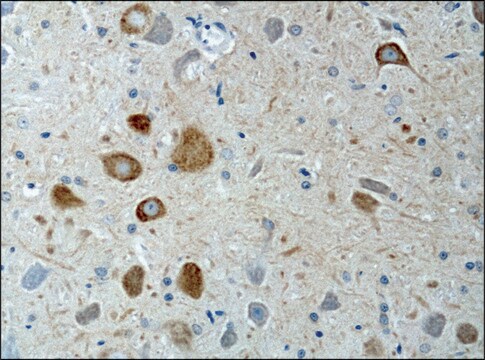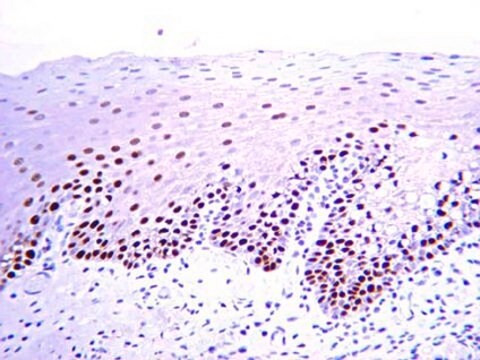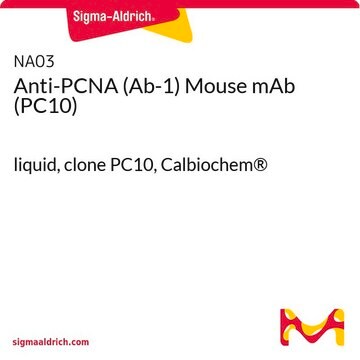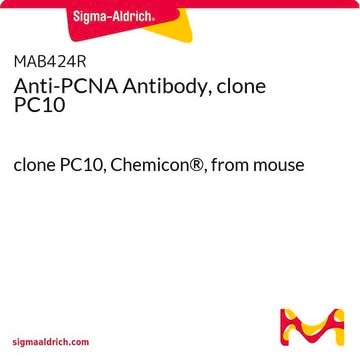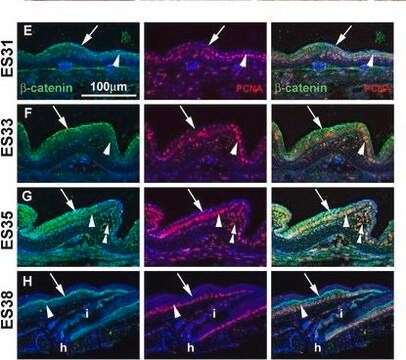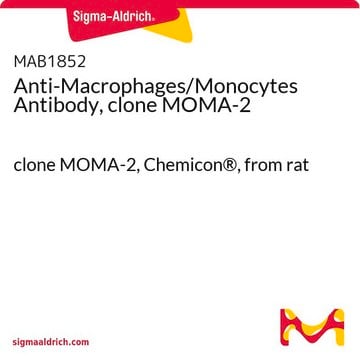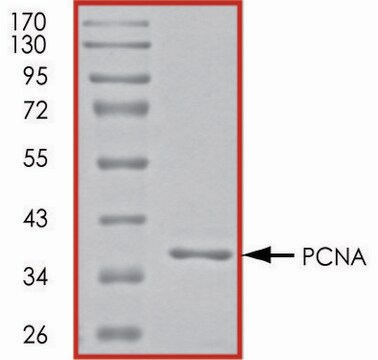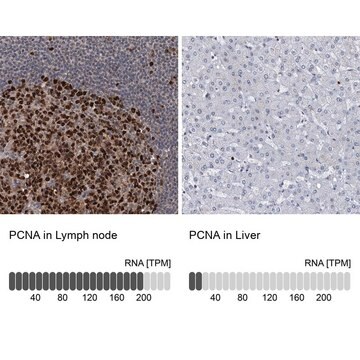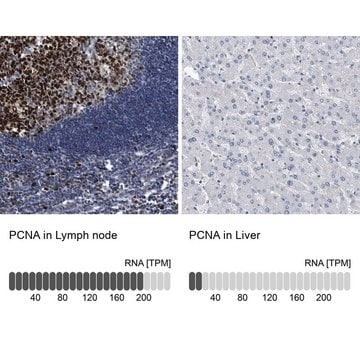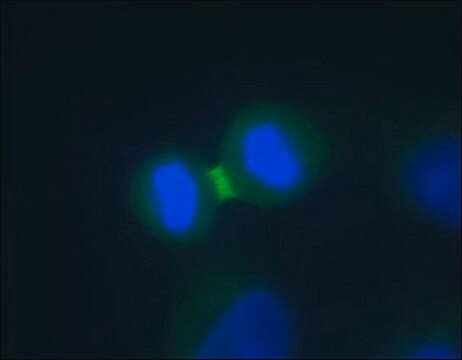P8825
Monoclonal Anti-Proliferating Cell Nuclear Antigen antibody produced in mouse
clone PC 10, ascites fluid
Synonym(s):
Monoclonal Anti-Proliferating Cell Nuclear Antigen, Anti-PCNA
About This Item
Recommended Products
biological source
mouse
Quality Level
conjugate
unconjugated
antibody form
ascites fluid
antibody product type
primary antibodies
clone
PC 10, monoclonal
contains
15 mM sodium azide
species reactivity
human, monkey, insect, yeast
rat, mouse
packaging
antibody small pack of 25 μL
technique(s)
flow cytometry: suitable
immunocytochemistry: suitable
immunohistochemistry (formalin-fixed, paraffin-embedded sections): 1:3,000 using human tonsil sections
immunohistochemistry (frozen sections): suitable
immunoprecipitation (IP): suitable
indirect ELISA: suitable
microarray: suitable
western blot: 1:3,000 using HS-68 human foreskin- cell extract
isotype
IgG2a
shipped in
dry ice
storage temp.
−20°C
target post-translational modification
unmodified
Gene Information
human ... PCNA(5111)
Looking for similar products? Visit Product Comparison Guide
General description
Specificity
Immunogen
Application
- enzyme linked immuno sorbent assay (ELISA)
- immunoblotting
- immunohistology
- immunoprecipitation
- flow cytometry
Biochem/physiol Actions
Disclaimer
Not finding the right product?
Try our Product Selector Tool.
Storage Class Code
12 - Non Combustible Liquids
WGK
nwg
Flash Point(F)
Not applicable
Flash Point(C)
Not applicable
Certificates of Analysis (COA)
Search for Certificates of Analysis (COA) by entering the products Lot/Batch Number. Lot and Batch Numbers can be found on a product’s label following the words ‘Lot’ or ‘Batch’.
Already Own This Product?
Find documentation for the products that you have recently purchased in the Document Library.
Customers Also Viewed
Our team of scientists has experience in all areas of research including Life Science, Material Science, Chemical Synthesis, Chromatography, Analytical and many others.
Contact Technical Service